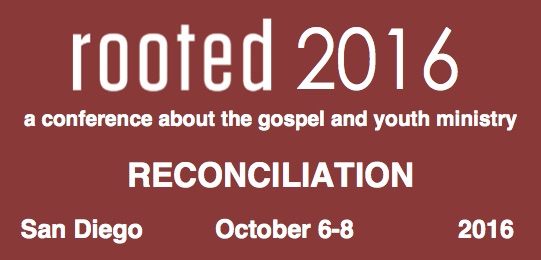My son was in trouble, again.
It was a pretty good day, but it went downhill. He was running down the hallway with his sister, except she wasn’t running fast enough. Since she was in front of him he decided to “move” her. She cried. I yelled. Then sent him to his room.

After feeling guilty for yelling in anger, I found him in his room, facedown on his bed, crying. I’m stupid, he said. I never make good decisions. I always do the wrong thing. She’s always so nice to me and I always hurt her. But I can’t help it!
I don’t think this situation is unique to my family. My son’s self-contempt was thicker than usual, but the grace of God has plenty to say to our kids in these moments.
Forfeiting the Chance
I needed to make a decision. I could tell him that he could try harder and do better next time. Or I could believe he really couldn’t help himself.
As Christians, we believe in original sin. Our sinful nature has corrupted (though not eradicated) the image of God within us. We desire self-glory more than God’s glory. We want to control more than to serve. We prefer pleasure to sacrifice. We listen to ourselves more than we listen to God.
In that moment, and in moments like it, I reminded my son that he’s a sinner. He sinned against his sister by knocking her over. He sinned against his parents by ignoring their admonition to slow down. He sinned against the Lord by putting himself first.
This incident was no great tragedy. He knocked his sister over and she was fine. But that isn’t the point. The point is that it’s the nature of sin to demand, “Me first!” And that’s exactly what he did.
As we talked about his sin, I reminded him of the gospel. God sent his son Jesus to die on the cross so we could be forgiven of our sin. Because we’re forgiven, we should live differently—not for his acceptance, but from his acceptance. We say no to ourselves and yes to God because he loves us and is making us more like himself. And when we look like Christ, the world sees a glimpse of the greatness of God.
If I refuse to tell my kids they’re sinners, I’m forfeiting a chance to communicate gospel grace.
Inoculated Against Grace
As a youth pastor, one of my greatest concerns is the salvation of “church kids.” Many seem to have been “inoculated” against the gospel by two things: their righteousness and their familiarity with Scripture. When there is no personal need for confession and repentance—because I don’t see myself as a sinner—the gospel loses its goodness and becomes a message merely for others.
As parents, we cannot build on a foundation we have not already built. When we confess our sin to our kids, we’re acknowledging what they already know: Mom and Dad are sinners who desperately need Jesus. If we aren’t willing to model confession, then we will be modeling self-righteousness. We’ll be subtly pointing to our own goodness without giving credit to the Holy Spirit who sanctifies.
When we don’t teach our kids about sin, we are actually making it difficult for them to become Christians. Without knowledge of their guilt, there can be no confession of sin or profession of faith. But when we teach our kids about their sinful nature, they’re more prepared to prayerfully turn to God for strength and help to resist temptation.
Give Them Good News
If we want our kids to know Christ and love him, then we must tell them the truth about themselves. They are human beings created in the image of God but captive to sin. Remember, the gospel is good news. Proclaim the power of God for salvation. Demonstrate the hope that comes through repentance and faith, in both salvation and sanctification.
When I discuss this issue with parents—even those fairly mature in their faith—I often get the impression I’m saying something radical. I pray this is not true, for this should be a basic cornerstone of gospel-centered parenting.
Does this mean we should start pointing out every sin our kids commit and shouting “sinner!” at them? Of course not. Instead, we must prayerfully seek the courage and wisdom to speak gospel truth into their lives as God opens opportunities. This will involve telling them they are sinners. It will involve telling them how God loves sinners. It will involve telling them how God saves sinners.
If there is no bad news, we won’t need the good news. We must tell our kids both.
Involved in Women’s Ministry? Add This to Your Discipleship Tool Kit.
 We need one another. Yet we don’t always know how to develop deep relationships to help us grow in the Christian life. Younger believers benefit from the guidance and wisdom of more mature saints as their faith deepens. But too often, potential mentors lack clarity and training on how to engage in discipling those they can influence.
We need one another. Yet we don’t always know how to develop deep relationships to help us grow in the Christian life. Younger believers benefit from the guidance and wisdom of more mature saints as their faith deepens. But too often, potential mentors lack clarity and training on how to engage in discipling those they can influence.
Whether you’re longing to find a spiritual mentor or hoping to serve as a guide for someone else, we have a FREE resource to encourage and equip you. In Growing Together: Taking Mentoring Beyond Small Talk and Prayer Requests, Melissa Kruger, TGC’s vice president of discipleship programming, offers encouraging lessons to guide conversations that promote spiritual growth in both the mentee and mentor.

































